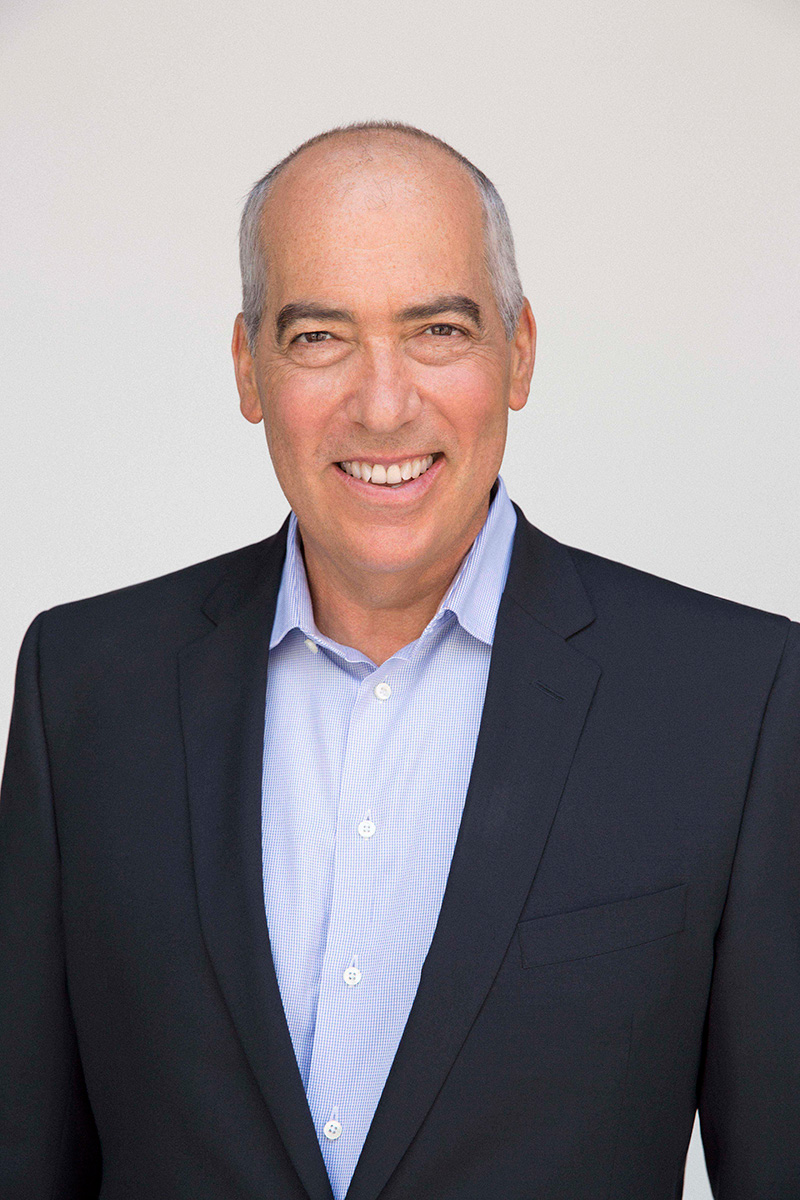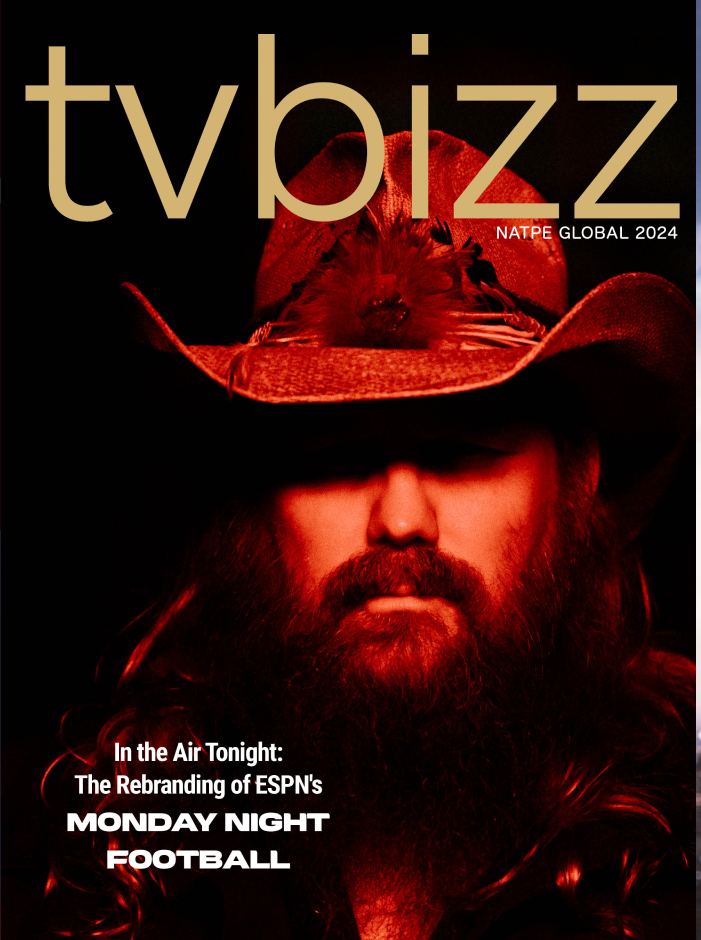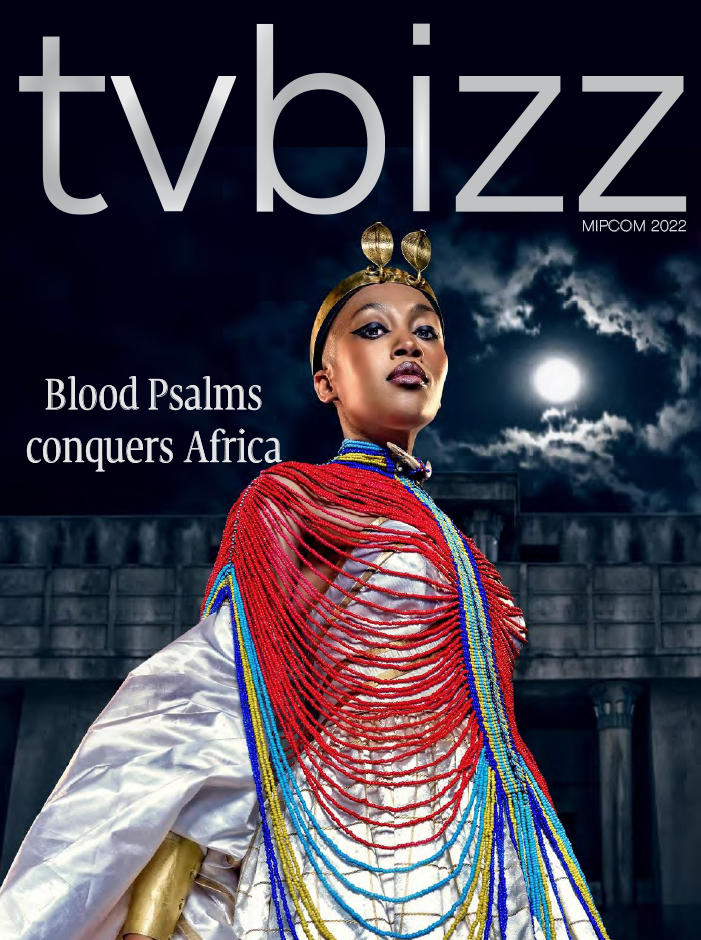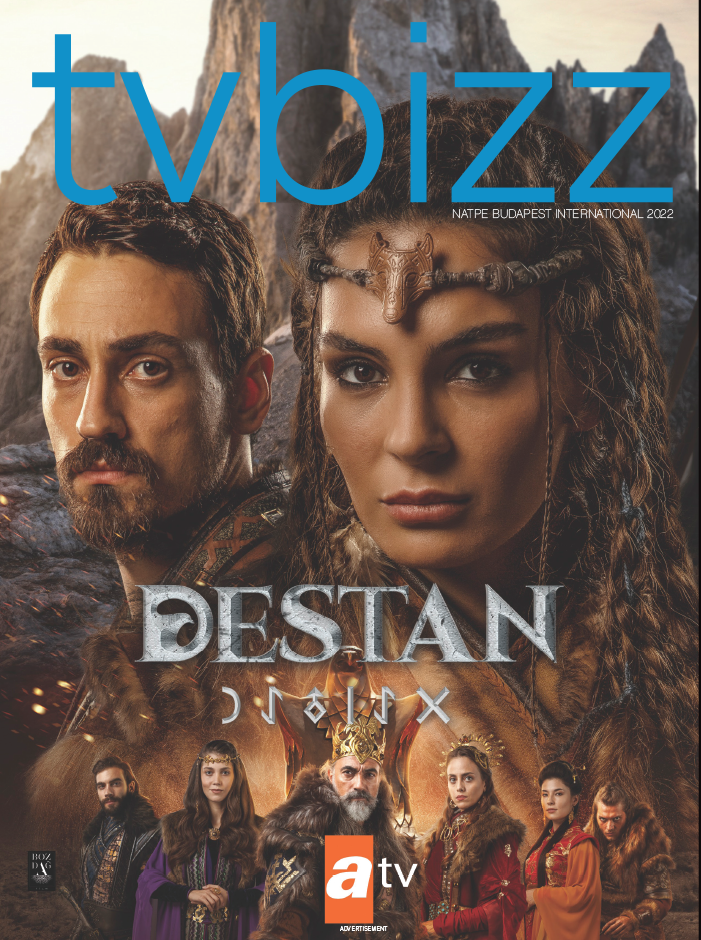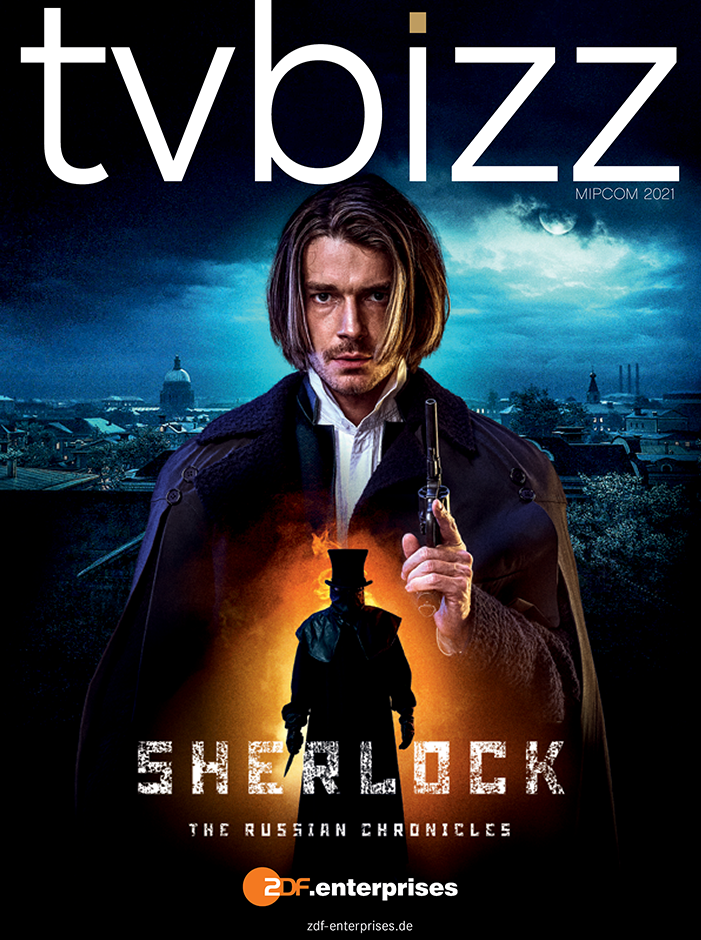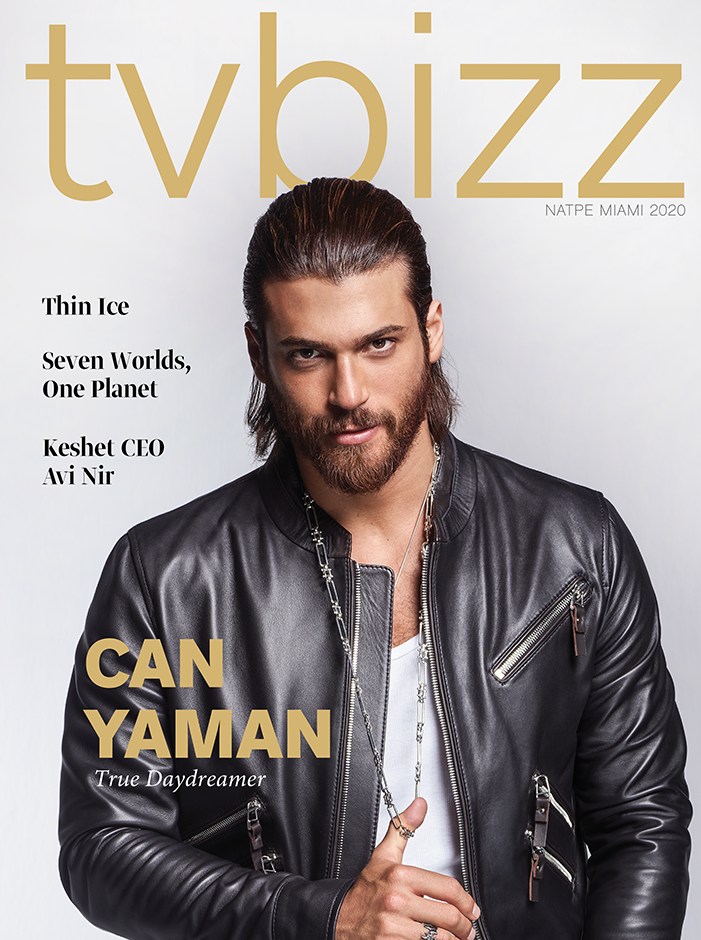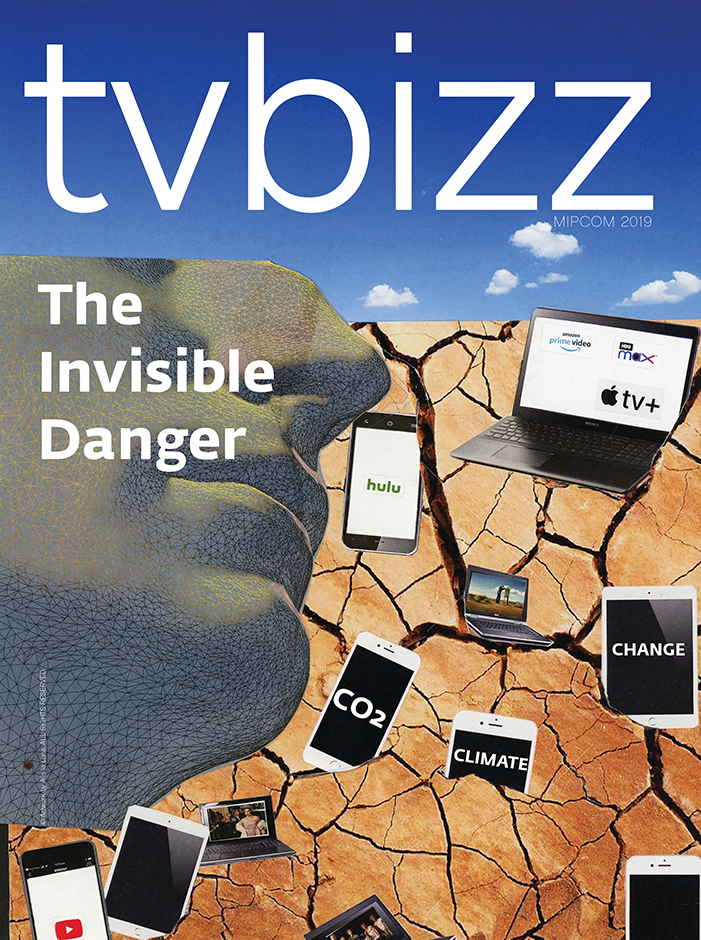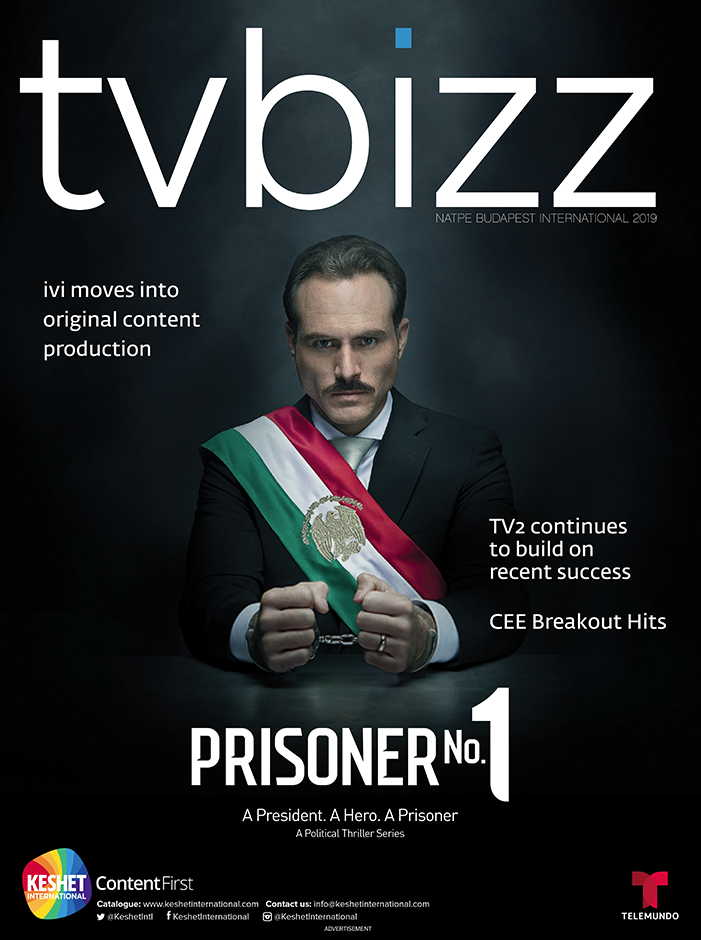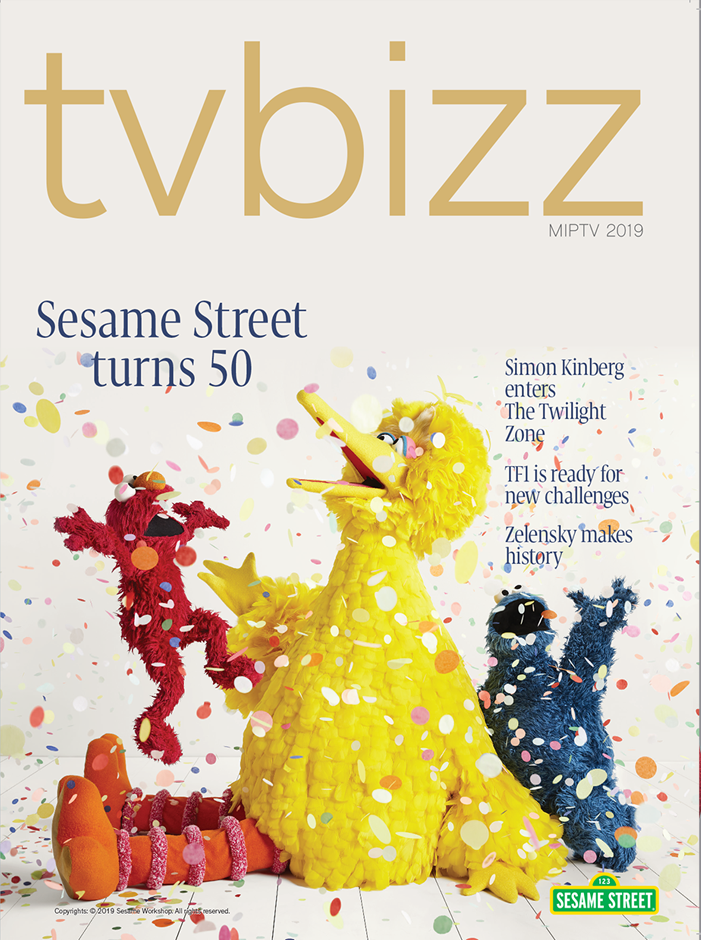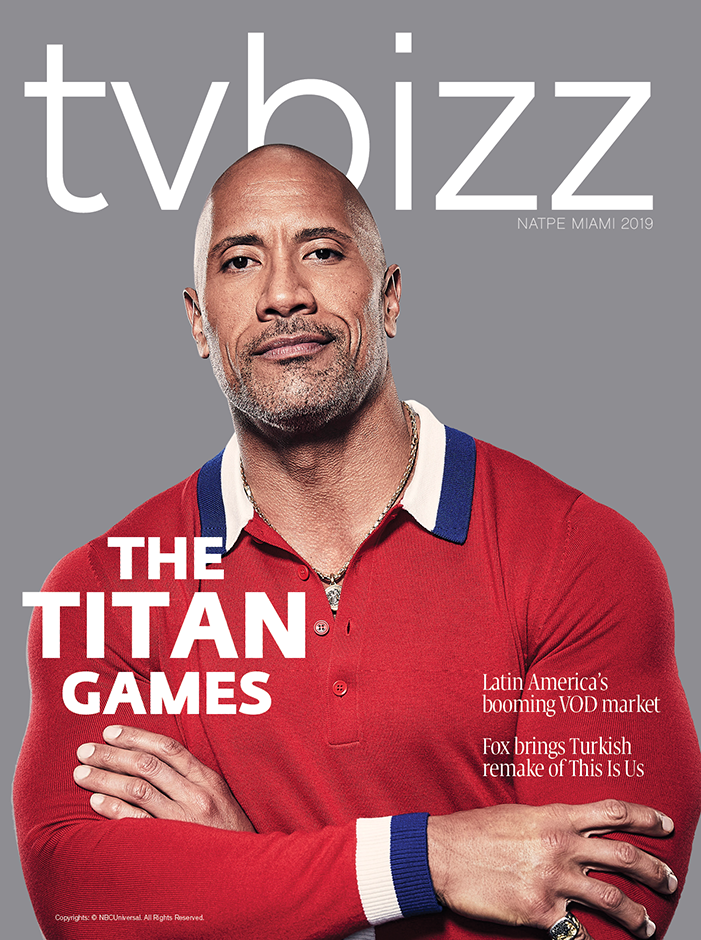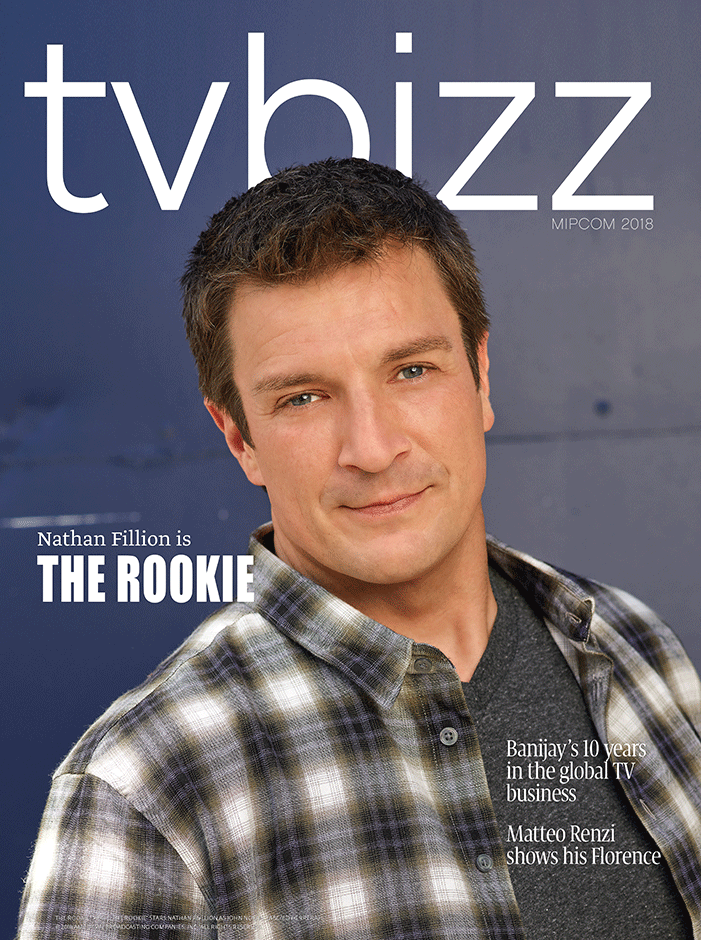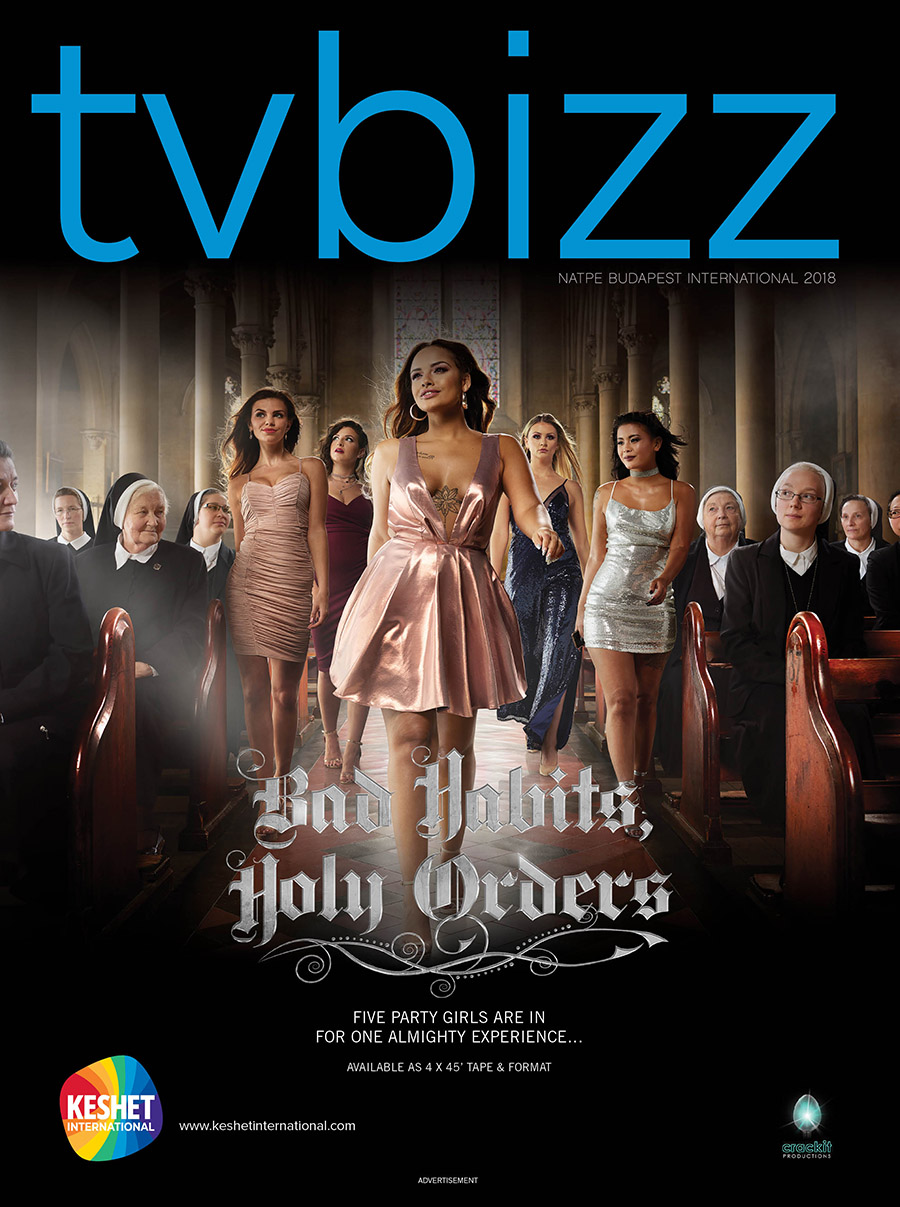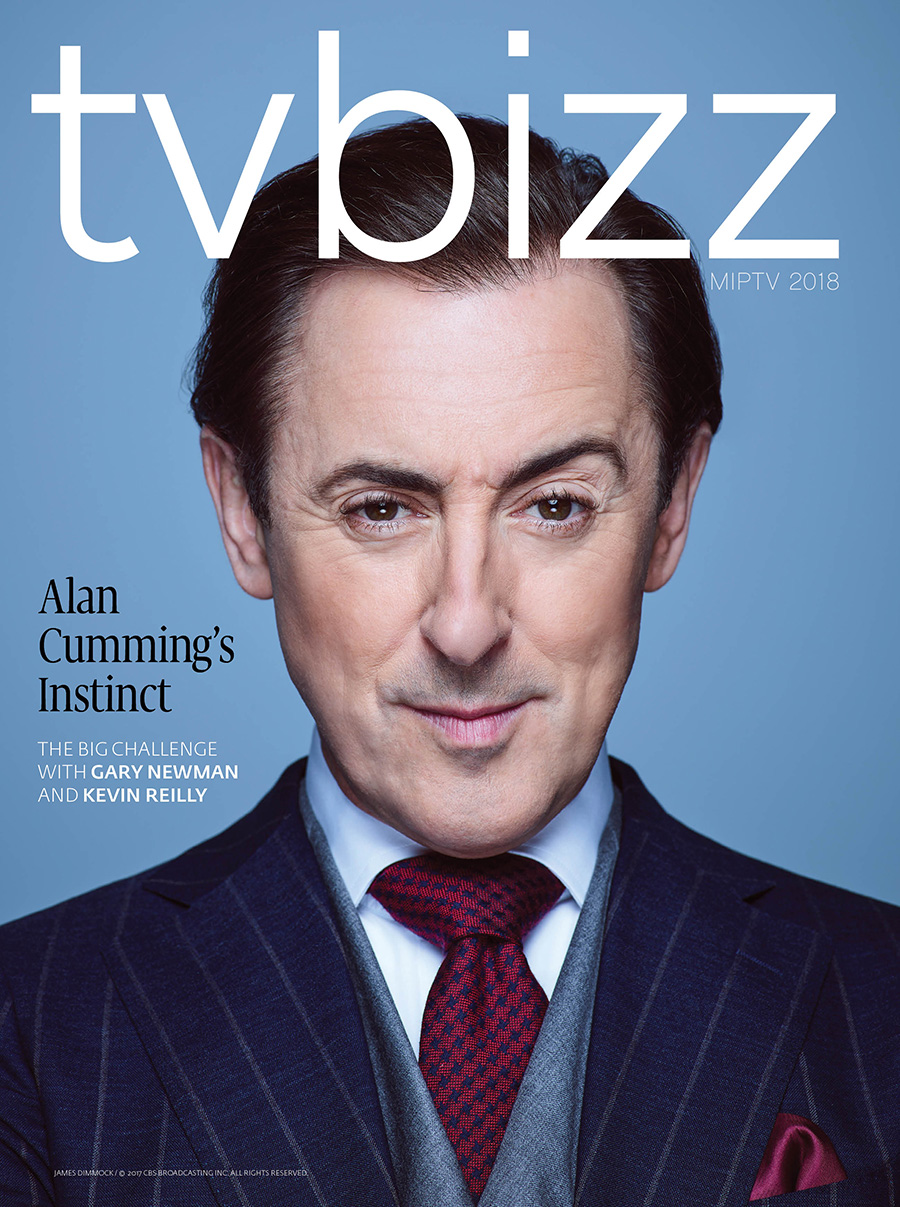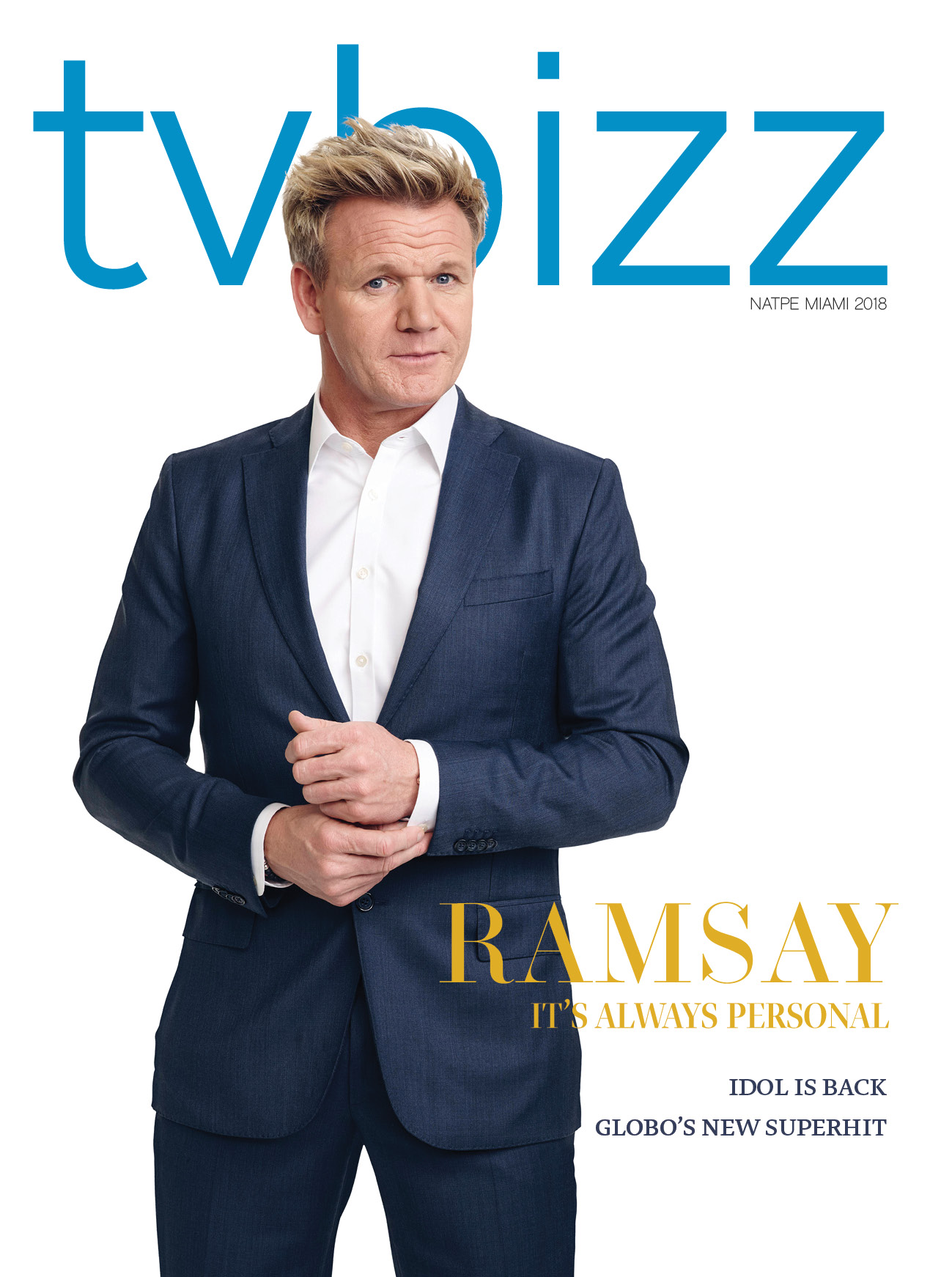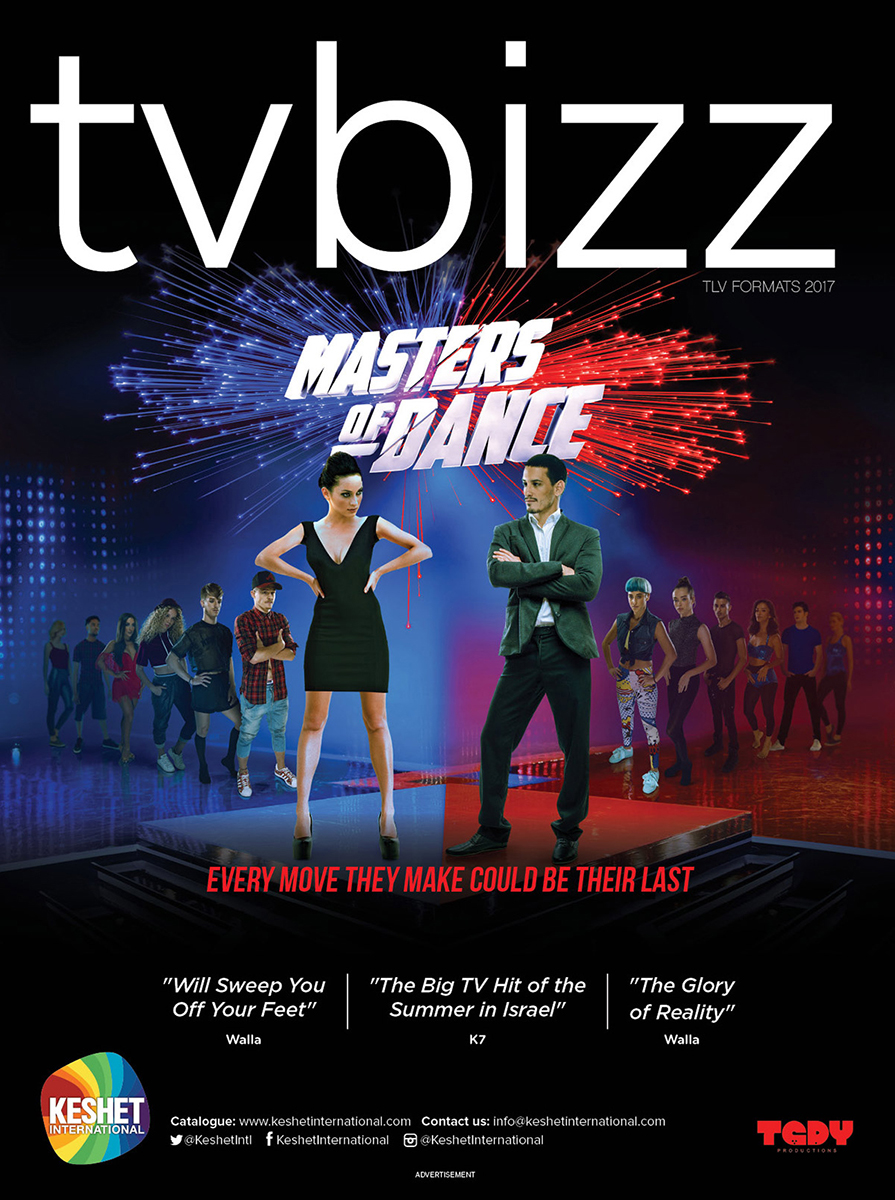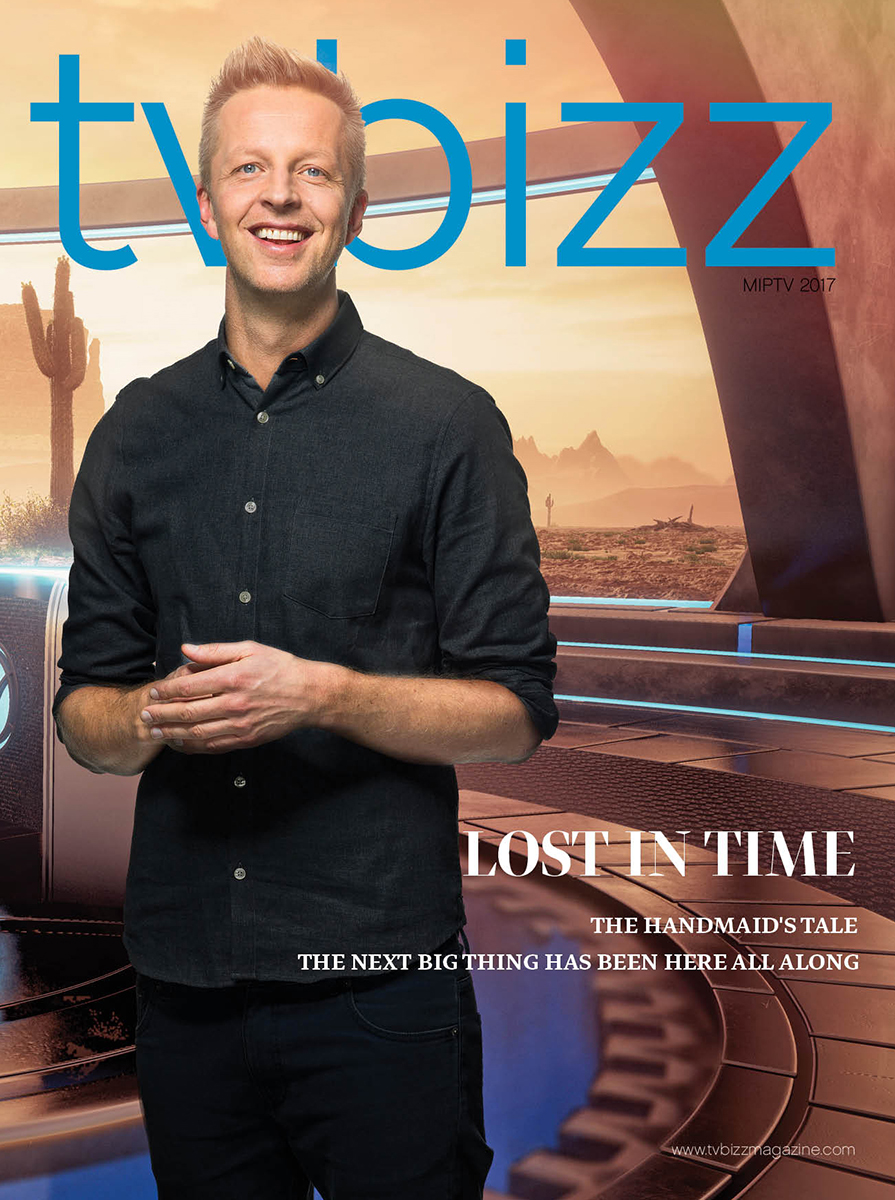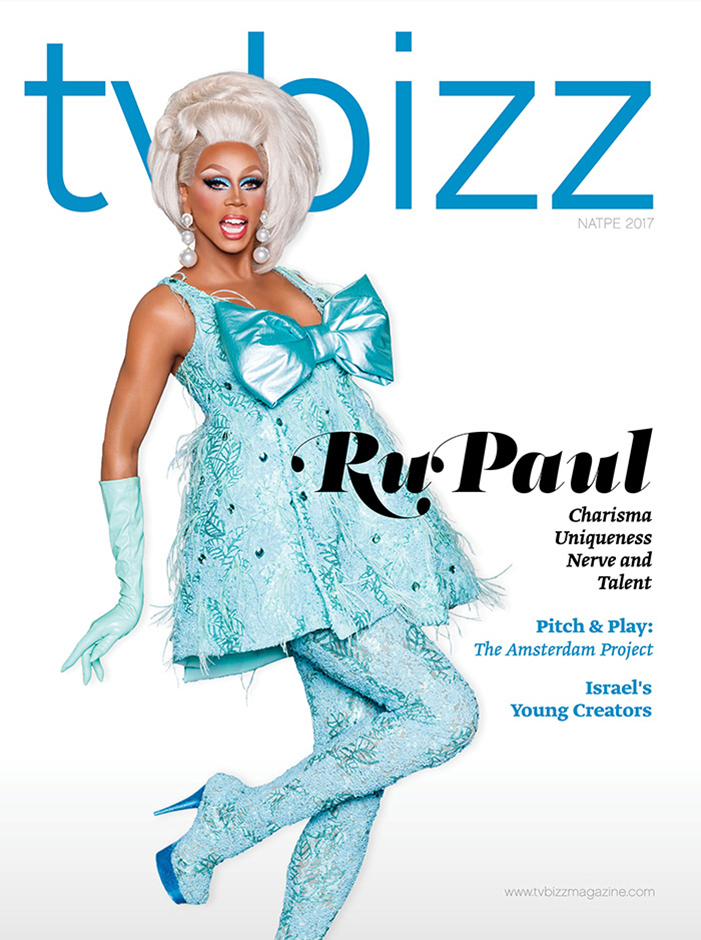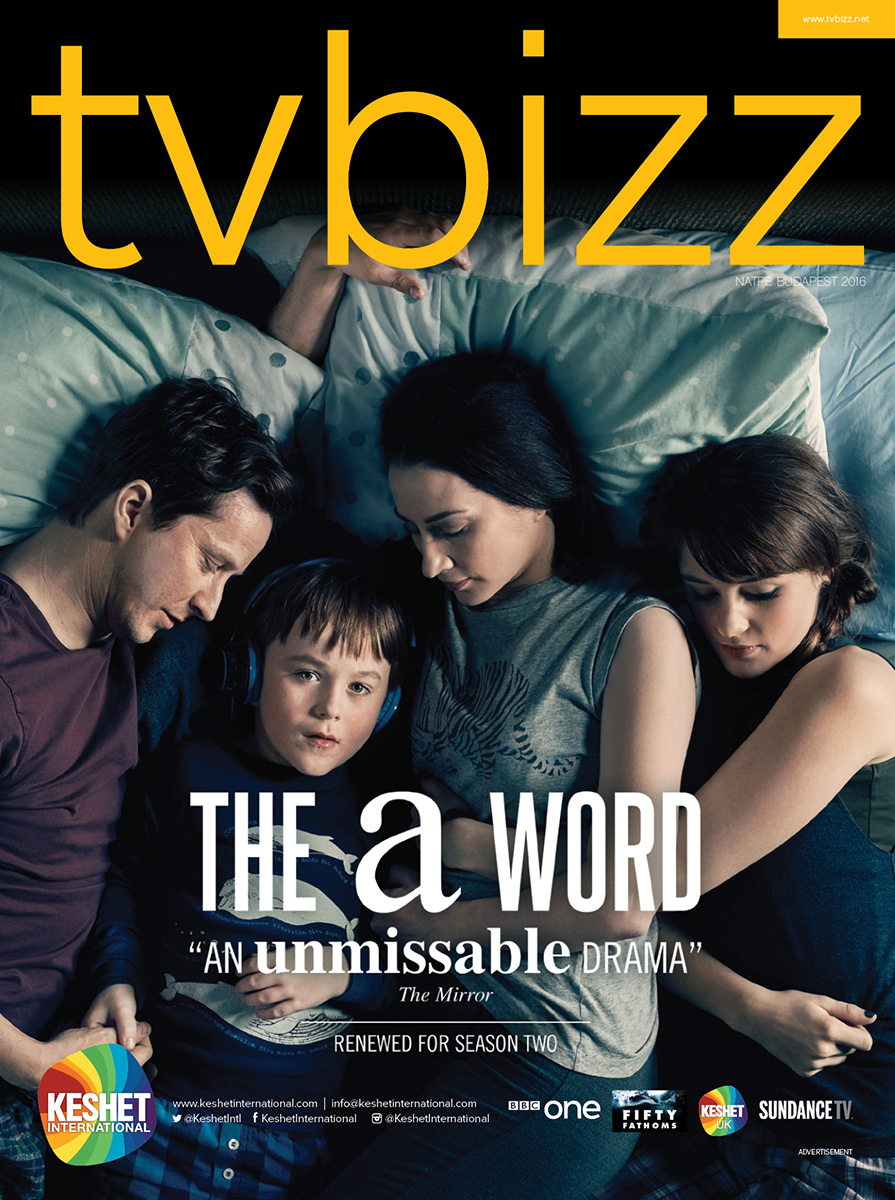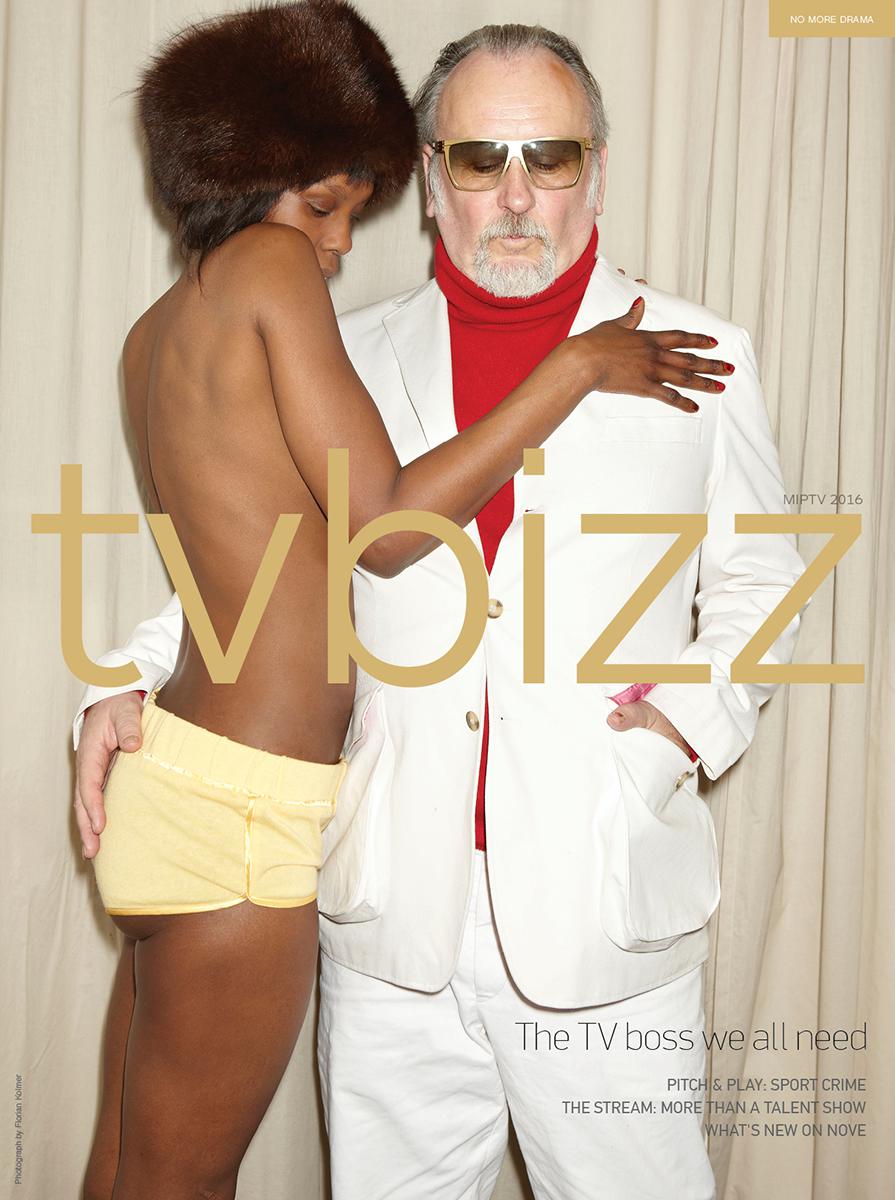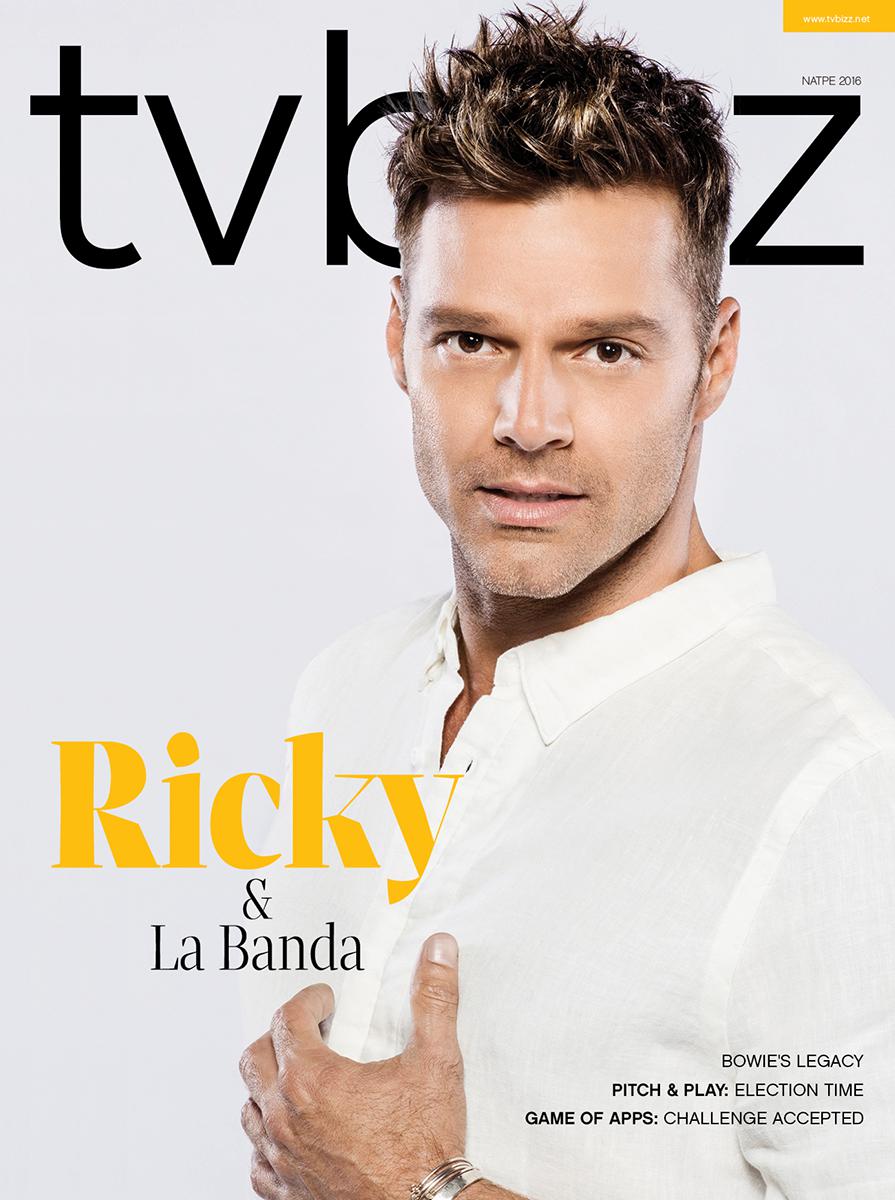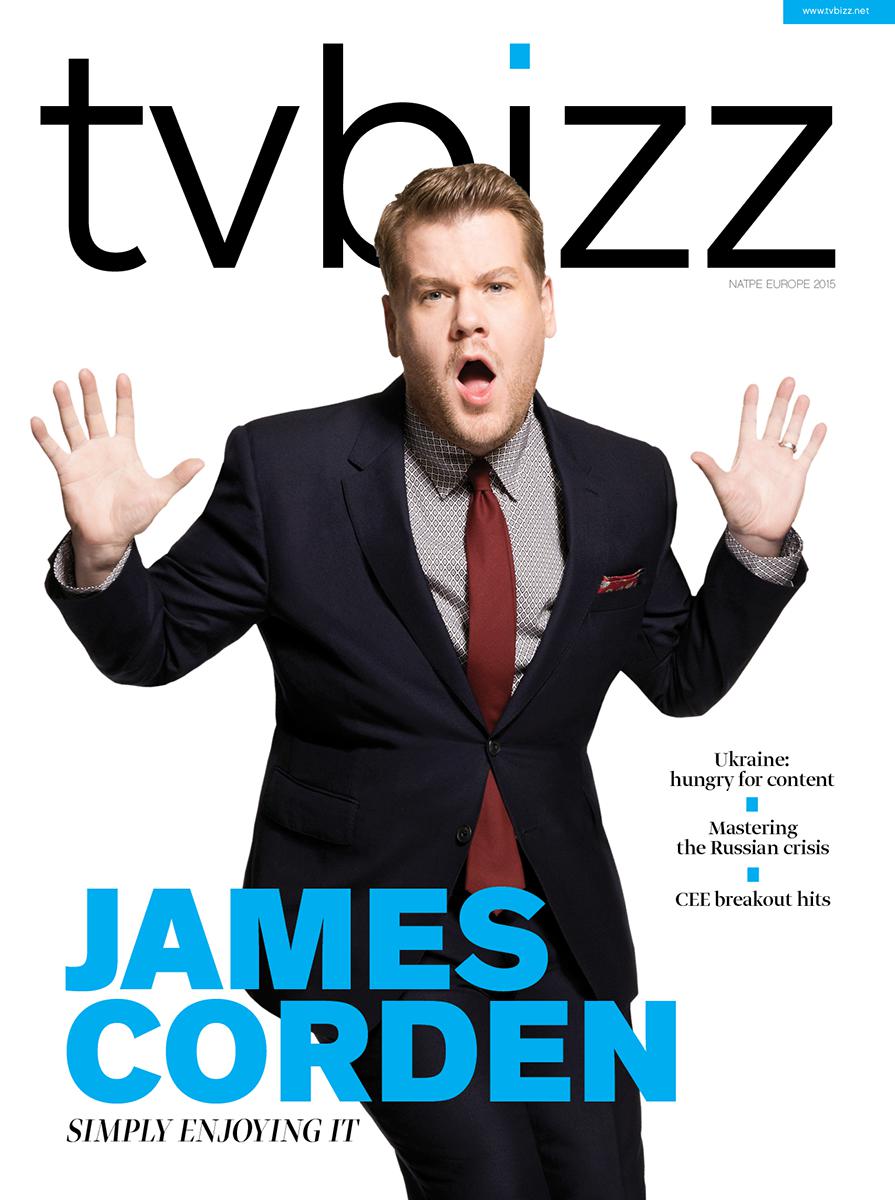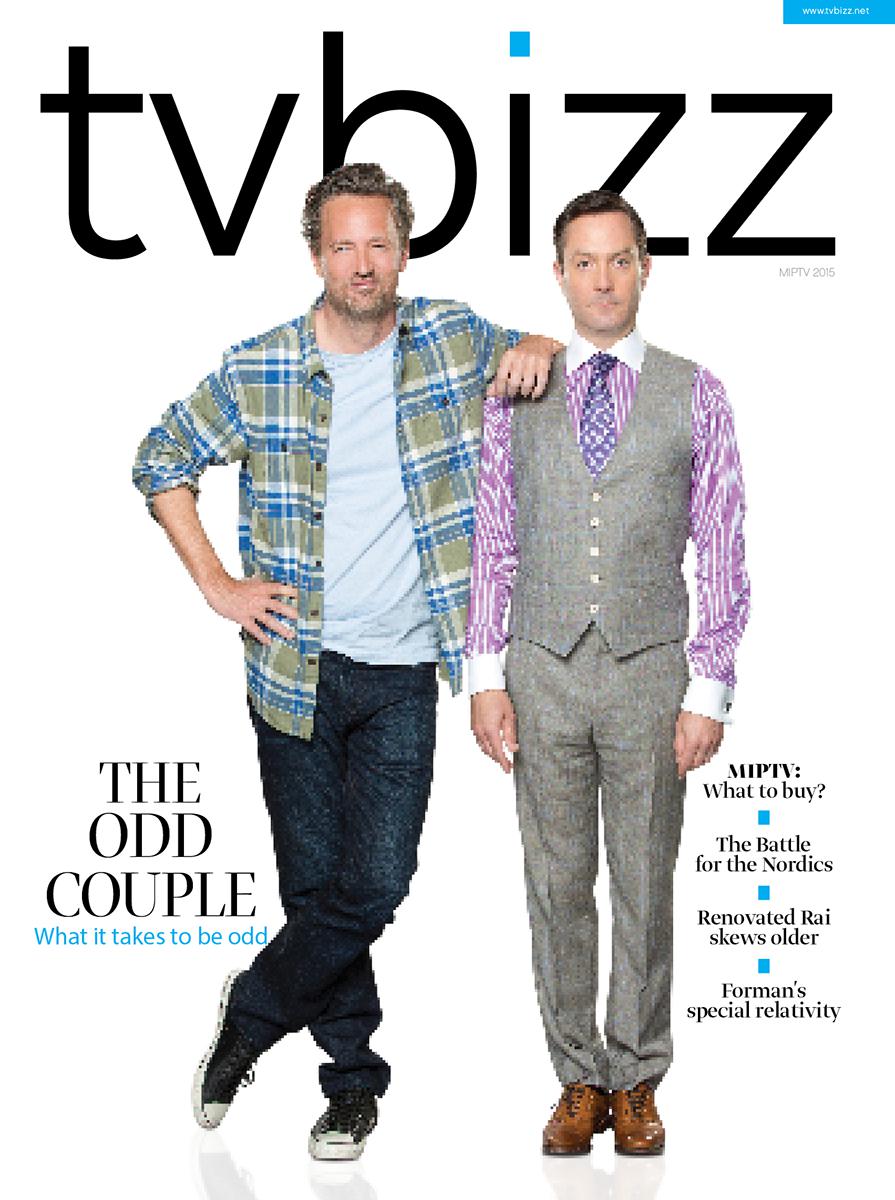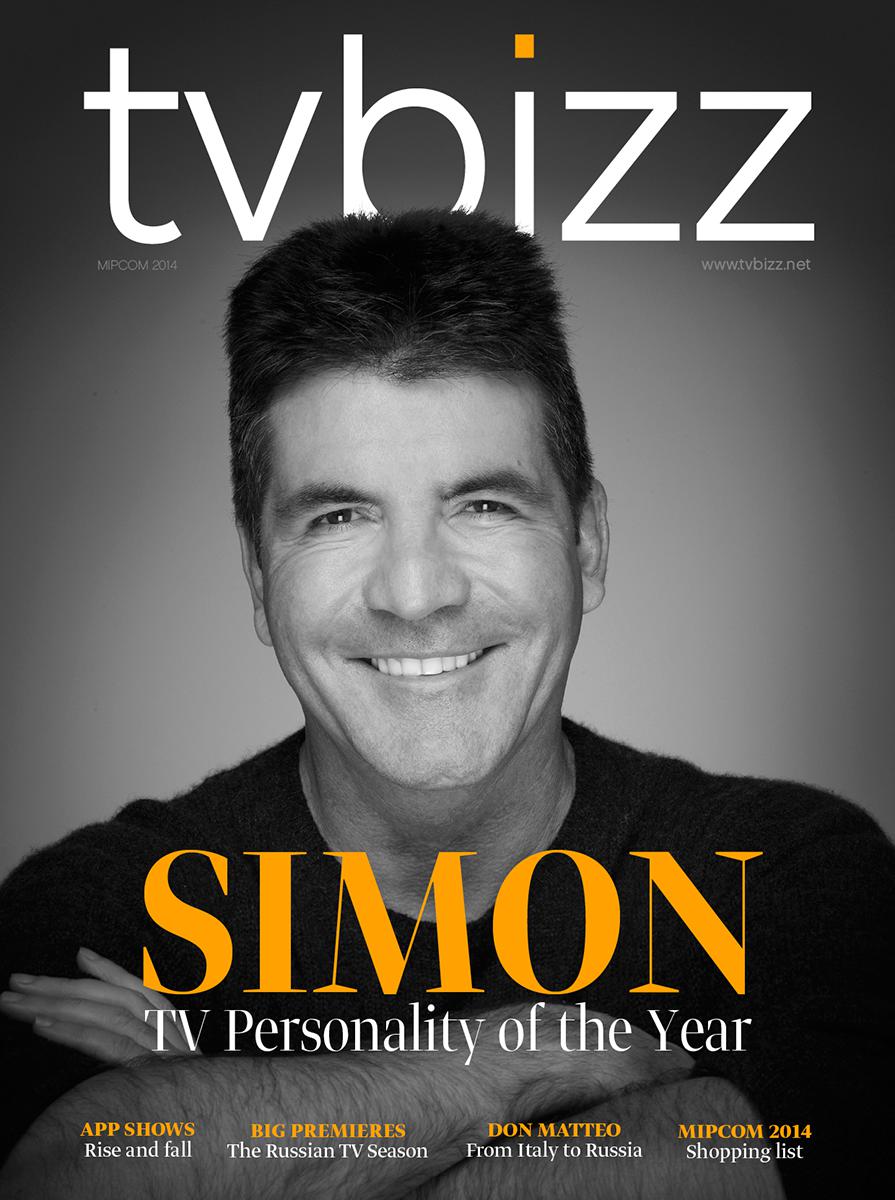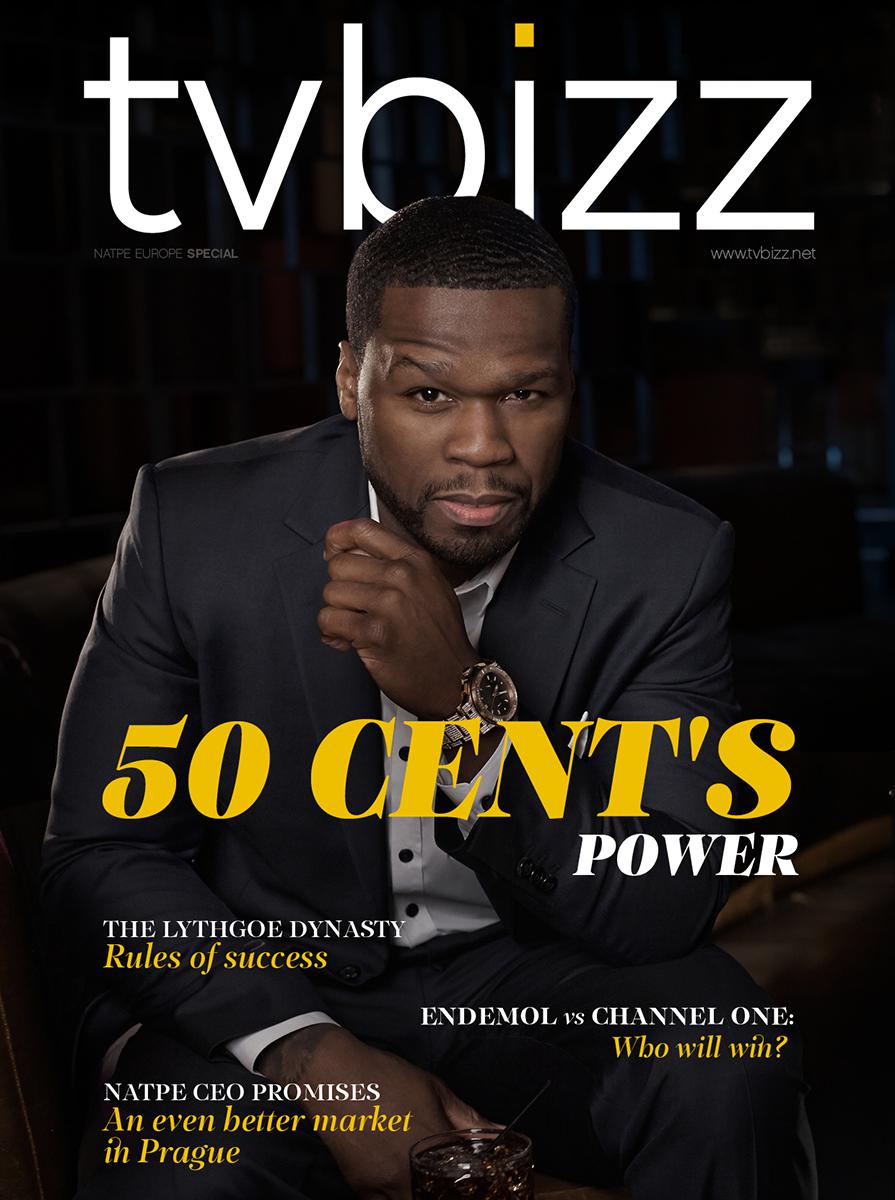Exciting Opportunities with Gary Newman
Fox and Disney are all set to close (once it gets approved) the biggest ever merger in entertainment history and the whole international TV community is wondering how will this change the rules of the global business of television. What will be the new challenges for the two giants? How strong will they be facing the ever more aggressive digital players like Netflix, Facebook, Google and Apple on the market? Can the big TV empires survive and how?
Stanislav Kimchev got a chance to talk about the future of the industry with Gary Newman, CEO Fox Television Group, during the INTV 2018 Conference in Jerusalem.
Stanislav Kimchev got a chance to talk about the future of the industry with Gary Newman, CEO Fox Television Group, during the INTV 2018 Conference in Jerusalem.
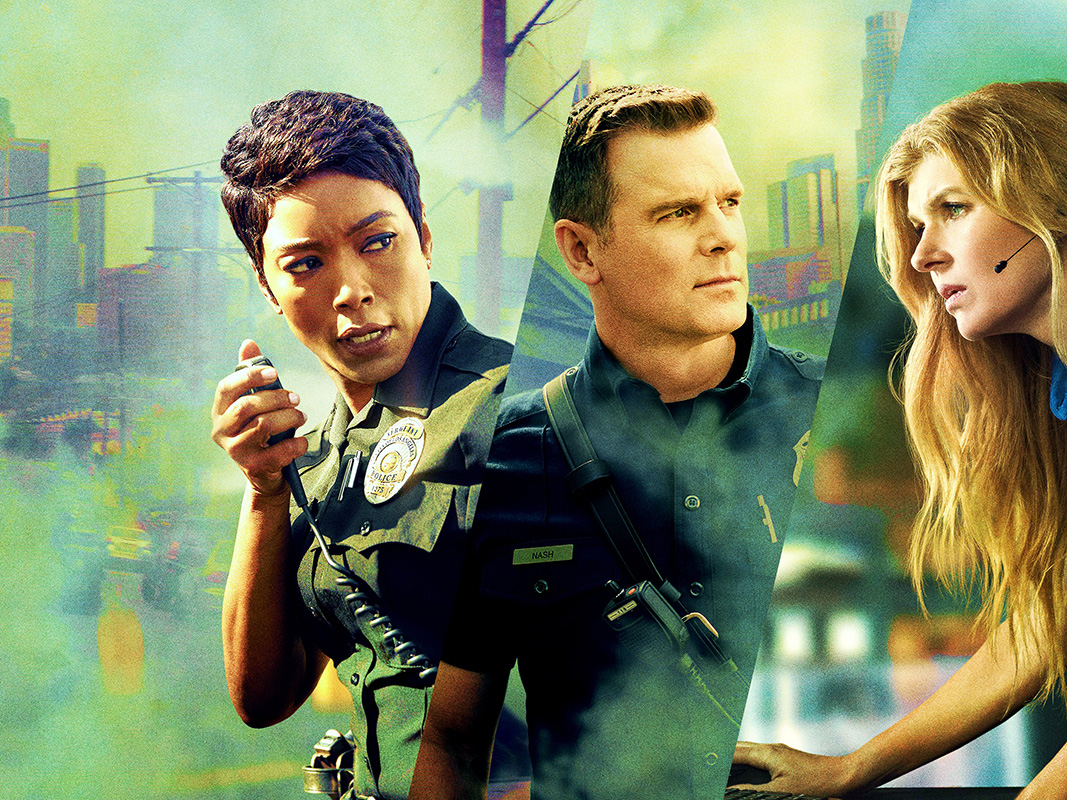
9-1-1
Mr. Newman, what do you expect to change following Disney’s acquisition of Fox Production properties, including 20th Century Fox TV? M&A’s are sometimes quite a long process, but in the end how will the Mouse change the Fox?
Well, I’m very excited about the prospect of it, Disney is a great company, Bob Iger is an exceptional leader. Because of the need for judicial review, Justice Department review in the US and review all around the world of different markets, we are not really at liberty to talk too much about it. In fact, they don’t allow us to sit with Disney and talk strategic plans at all, so those conversations haven’t happened. I can just tell you, thinking about the various assets, thinking about the various brands, I think there’s lots of exciting opportunities between the companies and should the merger happen I think it will be a very exciting place to work.
Were you surprised to find out that Mr. Murdoch has decided to sell Fox?
You know, I was surprised, I’ve worked at Fox for nearly 30 years and never imagined that the Murdochs would be sellers. But circumstances change and Rupert is nothing if not an iconic visionary and this was his vision for right now. When you stop and think about it, if you were aware that Fox was willing to sell off assets and you would’ve looked at what companies have the best assets, I think that Fox would’ve been at the top of the heap, so it is not a surprise to me that Disney reacted so aggressively, that Comcast wanted in, because with assets like 20th Century Fox Television, FX, National Geographic, the Film Studio, the regional sports networks, which are very important sports networks in our country, you know, they’re unique, invaluable assets.
Disney content is traditionally considered milder, skewing a more family audience, while Fox has some edgier brands, especially FX. Do you expect FX to lose some of its edge now?
Well, I’m really not the right person to talk about it, but I’ve spoken to John Landgraf. I know he’s spoken with Bob Iger; Bob has actually been in the press saying he loves FX, loves the programming and doesn’t see any reason it can’t continue to exist under Disney ownership.
What’s Fox’s current strategy in terms of content and positioning? It seems everyone is focusing much more on the digital audience?
Yes, we try to keep it relatively simple and for as long as we’ve been running that studio, we’ve been about the writer and the artist first. We don’t think about the platforms, we don’t think about the aftermarkets - it’s “Who are the writers who we believe are really gifted and have stories to tell, and how do we help them get those stories to market?”. We sort of famously developed the model of notwithstanding having our own broadcast network at Fox and our own cable network that we are going to take projects to the network when we thought the show had the best chance of succeeding, and while at times that’s been challenging because Fox hasn’t gotten things that maybe they wanted, we’ve been a home that’s attracted the very best writers and over 28 years and hundreds of series. I think having a great lead over any of our competitors in shows that have been nominated and received awards has been strategy for creating premium content. And the future is much more challenging now than the past has ever been - in addition to all the same competitors, there’s these new ones. But what hasn’t changed for us is that the way to compete is to not lose sight, it’s about the writer, it’s about developing great content, and trusting that if you have great content, an audience is going to find the way to find it.
Speaking about great content, can you reveal some of the future hits for Fox?
Well, we’ve got ten pilots in development at Fox, we have two in development for ABC, so we’ve got 12 terrific pilots in production. This year we’ve had some significant success at Fox: we put a show on in January, 9-1-1 from Ryan Murphy, which has really caught on in our country. It’s only begun to be shown internationally, but hopefully it’s going to catch on in many markets as well. We did a medical show this year, The Resident; we did a Seth MacFarlane sci-fi show called The Orville. What I like about all three of those shows is that they’re character-based procedurals, and procedurals tend to travel internationally much better, but having them fundamentally be character-based instead of plot-based, I think helps them stand out in the crowd. And a lot of audiences want character-based shows. You see, in serialized shows it’s often just about the characters, and I think this bridges the gap and will attract more delayed viewing than procedurals generally do and therefore reach the digital audience you’re referring to.
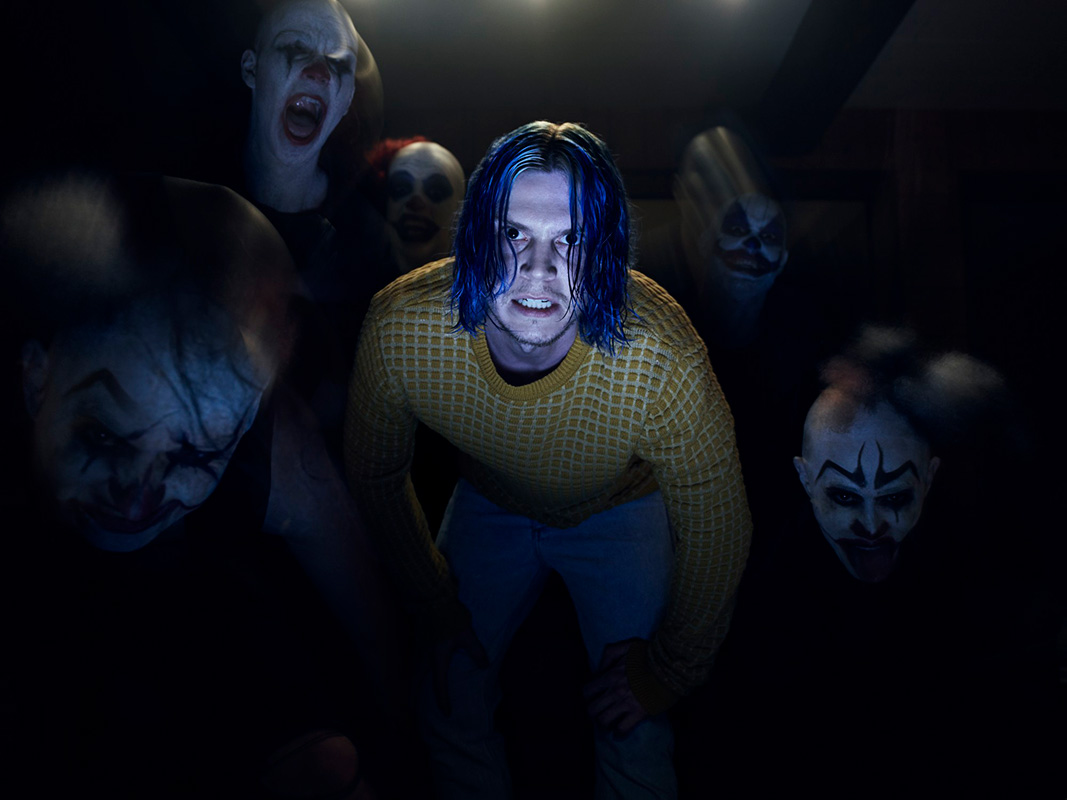
Co-management is complicated, yet you and Dana Walden provide a prominent example of very successful management by two leaders. Can you tell us how this works, how compromise there is in such a relationship and how important trust is?
Well, trust is everything and having a genuine friendship is everything. We’ve worked together in the company before becoming partners, so we had a level of trust with each other from a few years of working together. It’s an unusual structure and there’s plenty of success for two people to share. I never feel like when we have something successful there’s not enough light shined on me, there’s plenty of credit for everybody. But what’s really valuable is when things go bad, it is great to have someone to stand with, shoulder to shoulder, to bear the burden of disappointment and things not working out. I grew up playing team sports, I like managing a team and I like having a partner who shares the same agenda, and Dana and I (our offices are adjacent), we’re in and out of each other’s offices throughout the day, we talk every single weekend, we frequently talk at night, we love going to lunch together with others because that 10 minutes in the car, getting to lunch, gives us a chance to catch up and make sure we’re on the same page. So, it’s been the defining relationship for me in my career for sure and I’ve really enjoyed it.
Aren’t you afraid that now you will become more of competitors than partners?
No - you know, we don’t know what the future holds. I think there’s every reason to believe we’ll continue to work together, but if we didn’t, I’m sure our friendship will endure and Dana will be incredibly successful at what she does and hopefully the same will be true for me.
You have been with the Fox studio for 28 years. What was your most difficult moment during this tenure?
The most difficult moment in 28 years - it’s hard to pick a particular moment, but there have been shows over the years that we just have loved that got cancelled - that was painful. Writers and actors, whom we develop such close relationships with and to see their shows not make it to the next level, I think were probably always the most painful things. But, you know, what’s funny is there’s been so many successes and I’m an optimistic person, who looks forward, and if you ask me to look back at my career, the successes are the ones that stand out for me, not the disappointments.
You have been involved in green lighting such shows as Modern Family, The Americans, Empire, American Horror Story. How easy is it nowadays to find a true hit with this huge competition from TV rivals and streaming giants?
I think the biggest challenge is grabbing the attention of the viewer. You know, you do great shows, but can you communicate to people that there’s something they should watch? It’s why these networks are so important that if you do a drama for FX - we did American Horror Story there - we gave them American Crime Story, the FX audience had trust that FX knew how to put a great drama on and gravitate it to American Crime Story. The Fox Network, one of the things we think about a lot is “What is our brand?”, you know, “What have the audiences come to expect from us?”. So, it’s challenging, and look, the streamers create a great challenge, because they create so much content that they’re making it more competitive to get the word out, but we think with our focus on writers we’re gonna be OK.
Is the future of TV still bright or will it be overshadowed by Netflix, Amazon, Google and Facebook? Do you use personally any of these services?
Yes, I do have all of these services, but I’m very bullish on network television broadcast. I love our structure of delivering episodes weekly. I understand there are certain types of shows that people want to binge, and the heavily serialized shows fit that platform pretty well. But I do think there’s a juiciness to a show that you look forward to all week, you watch and you say “God, I wish there was another one!”, and you know you have to wait and you talk to your spouse, friends and your kids about it, and that carries on for several months. I think that’s among the most powerful platforms you can ever have, because it just builds so much anticipation. In our country, This Is Us, which we make for NBC, just finishing up our second year, is an incredible phenomenon that people talk about at work, and that isn’t going away, and I don’t think the advertising market is going away. So, I believe broadcast television is here to stay - and we have to get better, we have to shorten our ad breaks and declutter our air, but I think it’s a powerful medium.
Well, I’m very excited about the prospect of it, Disney is a great company, Bob Iger is an exceptional leader. Because of the need for judicial review, Justice Department review in the US and review all around the world of different markets, we are not really at liberty to talk too much about it. In fact, they don’t allow us to sit with Disney and talk strategic plans at all, so those conversations haven’t happened. I can just tell you, thinking about the various assets, thinking about the various brands, I think there’s lots of exciting opportunities between the companies and should the merger happen I think it will be a very exciting place to work.
Were you surprised to find out that Mr. Murdoch has decided to sell Fox?
You know, I was surprised, I’ve worked at Fox for nearly 30 years and never imagined that the Murdochs would be sellers. But circumstances change and Rupert is nothing if not an iconic visionary and this was his vision for right now. When you stop and think about it, if you were aware that Fox was willing to sell off assets and you would’ve looked at what companies have the best assets, I think that Fox would’ve been at the top of the heap, so it is not a surprise to me that Disney reacted so aggressively, that Comcast wanted in, because with assets like 20th Century Fox Television, FX, National Geographic, the Film Studio, the regional sports networks, which are very important sports networks in our country, you know, they’re unique, invaluable assets.
Disney content is traditionally considered milder, skewing a more family audience, while Fox has some edgier brands, especially FX. Do you expect FX to lose some of its edge now?
Well, I’m really not the right person to talk about it, but I’ve spoken to John Landgraf. I know he’s spoken with Bob Iger; Bob has actually been in the press saying he loves FX, loves the programming and doesn’t see any reason it can’t continue to exist under Disney ownership.
What’s Fox’s current strategy in terms of content and positioning? It seems everyone is focusing much more on the digital audience?
Yes, we try to keep it relatively simple and for as long as we’ve been running that studio, we’ve been about the writer and the artist first. We don’t think about the platforms, we don’t think about the aftermarkets - it’s “Who are the writers who we believe are really gifted and have stories to tell, and how do we help them get those stories to market?”. We sort of famously developed the model of notwithstanding having our own broadcast network at Fox and our own cable network that we are going to take projects to the network when we thought the show had the best chance of succeeding, and while at times that’s been challenging because Fox hasn’t gotten things that maybe they wanted, we’ve been a home that’s attracted the very best writers and over 28 years and hundreds of series. I think having a great lead over any of our competitors in shows that have been nominated and received awards has been strategy for creating premium content. And the future is much more challenging now than the past has ever been - in addition to all the same competitors, there’s these new ones. But what hasn’t changed for us is that the way to compete is to not lose sight, it’s about the writer, it’s about developing great content, and trusting that if you have great content, an audience is going to find the way to find it.
Speaking about great content, can you reveal some of the future hits for Fox?
Well, we’ve got ten pilots in development at Fox, we have two in development for ABC, so we’ve got 12 terrific pilots in production. This year we’ve had some significant success at Fox: we put a show on in January, 9-1-1 from Ryan Murphy, which has really caught on in our country. It’s only begun to be shown internationally, but hopefully it’s going to catch on in many markets as well. We did a medical show this year, The Resident; we did a Seth MacFarlane sci-fi show called The Orville. What I like about all three of those shows is that they’re character-based procedurals, and procedurals tend to travel internationally much better, but having them fundamentally be character-based instead of plot-based, I think helps them stand out in the crowd. And a lot of audiences want character-based shows. You see, in serialized shows it’s often just about the characters, and I think this bridges the gap and will attract more delayed viewing than procedurals generally do and therefore reach the digital audience you’re referring to.

AHS
Co-management is complicated, yet you and Dana Walden provide a prominent example of very successful management by two leaders. Can you tell us how this works, how compromise there is in such a relationship and how important trust is?
Well, trust is everything and having a genuine friendship is everything. We’ve worked together in the company before becoming partners, so we had a level of trust with each other from a few years of working together. It’s an unusual structure and there’s plenty of success for two people to share. I never feel like when we have something successful there’s not enough light shined on me, there’s plenty of credit for everybody. But what’s really valuable is when things go bad, it is great to have someone to stand with, shoulder to shoulder, to bear the burden of disappointment and things not working out. I grew up playing team sports, I like managing a team and I like having a partner who shares the same agenda, and Dana and I (our offices are adjacent), we’re in and out of each other’s offices throughout the day, we talk every single weekend, we frequently talk at night, we love going to lunch together with others because that 10 minutes in the car, getting to lunch, gives us a chance to catch up and make sure we’re on the same page. So, it’s been the defining relationship for me in my career for sure and I’ve really enjoyed it.
Aren’t you afraid that now you will become more of competitors than partners?
No - you know, we don’t know what the future holds. I think there’s every reason to believe we’ll continue to work together, but if we didn’t, I’m sure our friendship will endure and Dana will be incredibly successful at what she does and hopefully the same will be true for me.
You have been with the Fox studio for 28 years. What was your most difficult moment during this tenure?
The most difficult moment in 28 years - it’s hard to pick a particular moment, but there have been shows over the years that we just have loved that got cancelled - that was painful. Writers and actors, whom we develop such close relationships with and to see their shows not make it to the next level, I think were probably always the most painful things. But, you know, what’s funny is there’s been so many successes and I’m an optimistic person, who looks forward, and if you ask me to look back at my career, the successes are the ones that stand out for me, not the disappointments.
You have been involved in green lighting such shows as Modern Family, The Americans, Empire, American Horror Story. How easy is it nowadays to find a true hit with this huge competition from TV rivals and streaming giants?
I think the biggest challenge is grabbing the attention of the viewer. You know, you do great shows, but can you communicate to people that there’s something they should watch? It’s why these networks are so important that if you do a drama for FX - we did American Horror Story there - we gave them American Crime Story, the FX audience had trust that FX knew how to put a great drama on and gravitate it to American Crime Story. The Fox Network, one of the things we think about a lot is “What is our brand?”, you know, “What have the audiences come to expect from us?”. So, it’s challenging, and look, the streamers create a great challenge, because they create so much content that they’re making it more competitive to get the word out, but we think with our focus on writers we’re gonna be OK.
Is the future of TV still bright or will it be overshadowed by Netflix, Amazon, Google and Facebook? Do you use personally any of these services?
Yes, I do have all of these services, but I’m very bullish on network television broadcast. I love our structure of delivering episodes weekly. I understand there are certain types of shows that people want to binge, and the heavily serialized shows fit that platform pretty well. But I do think there’s a juiciness to a show that you look forward to all week, you watch and you say “God, I wish there was another one!”, and you know you have to wait and you talk to your spouse, friends and your kids about it, and that carries on for several months. I think that’s among the most powerful platforms you can ever have, because it just builds so much anticipation. In our country, This Is Us, which we make for NBC, just finishing up our second year, is an incredible phenomenon that people talk about at work, and that isn’t going away, and I don’t think the advertising market is going away. So, I believe broadcast television is here to stay - and we have to get better, we have to shorten our ad breaks and declutter our air, but I think it’s a powerful medium.
